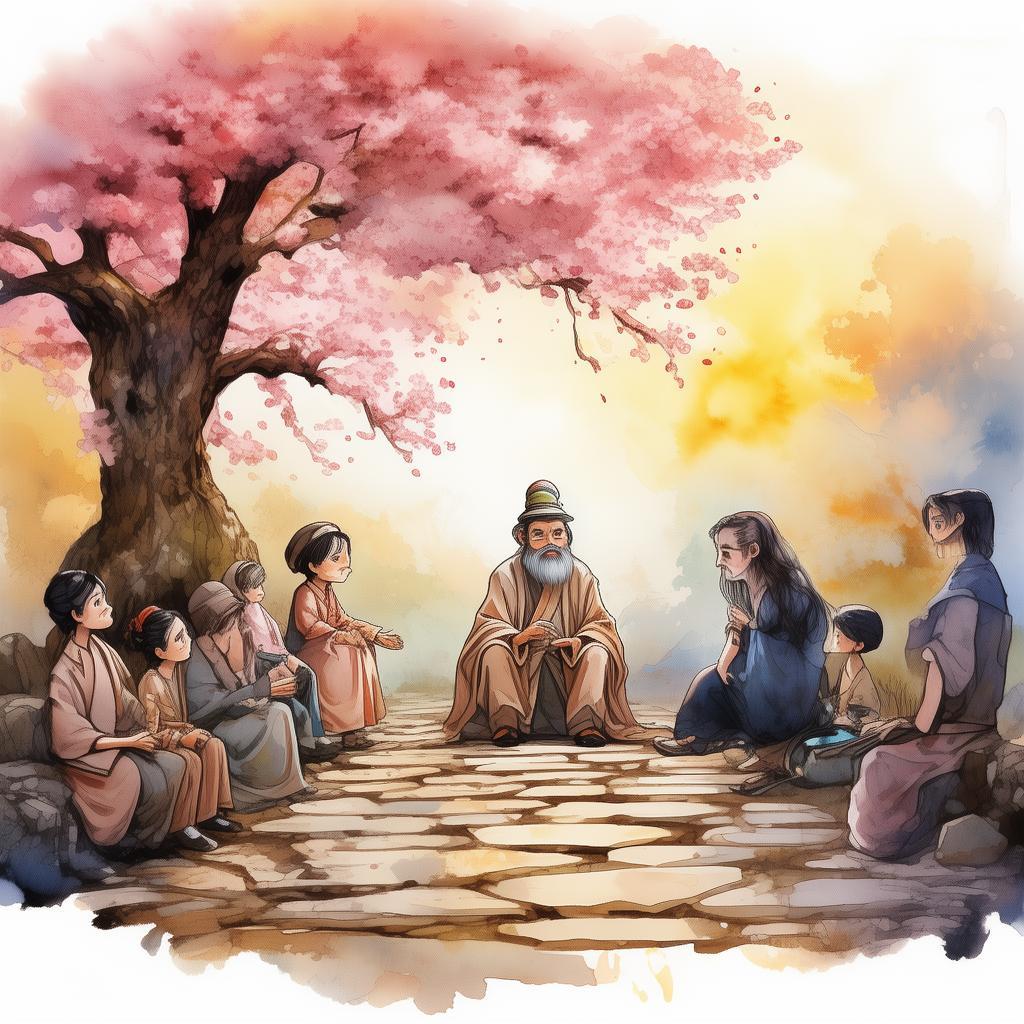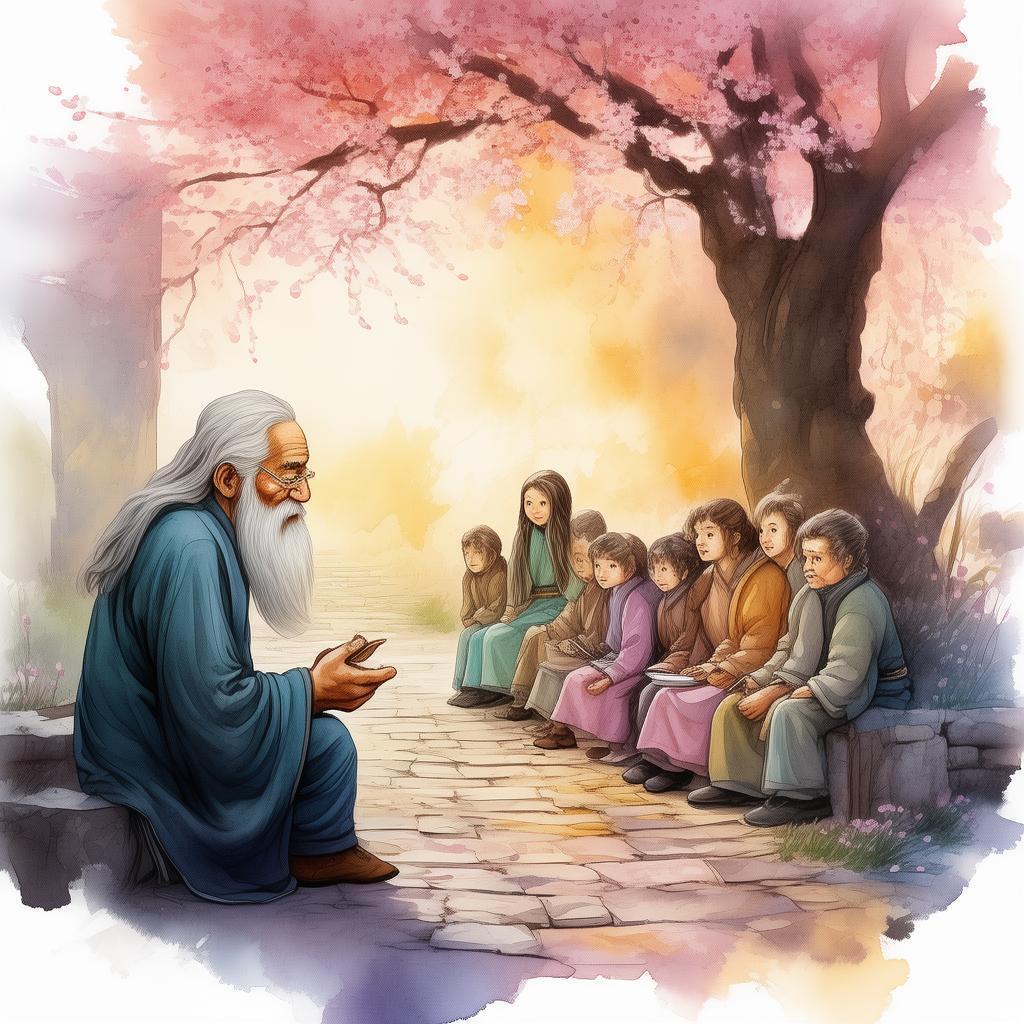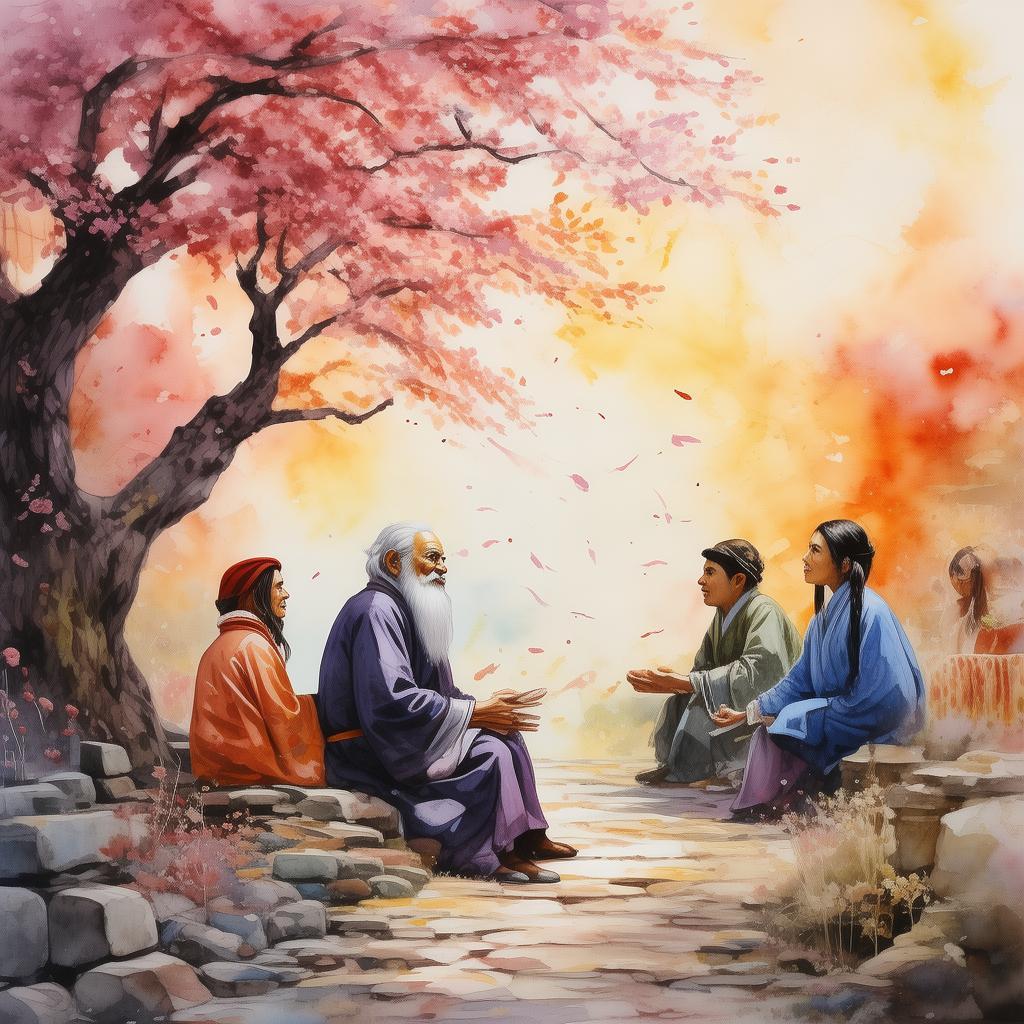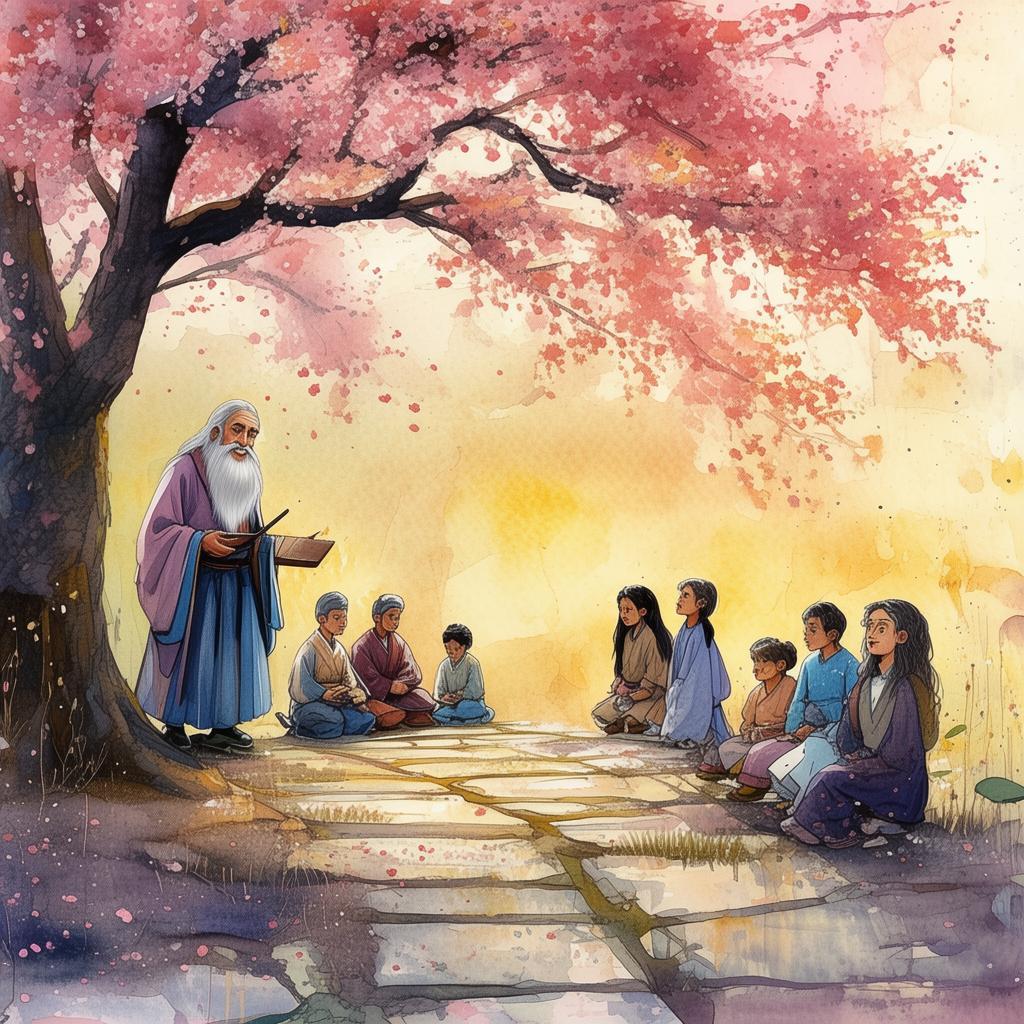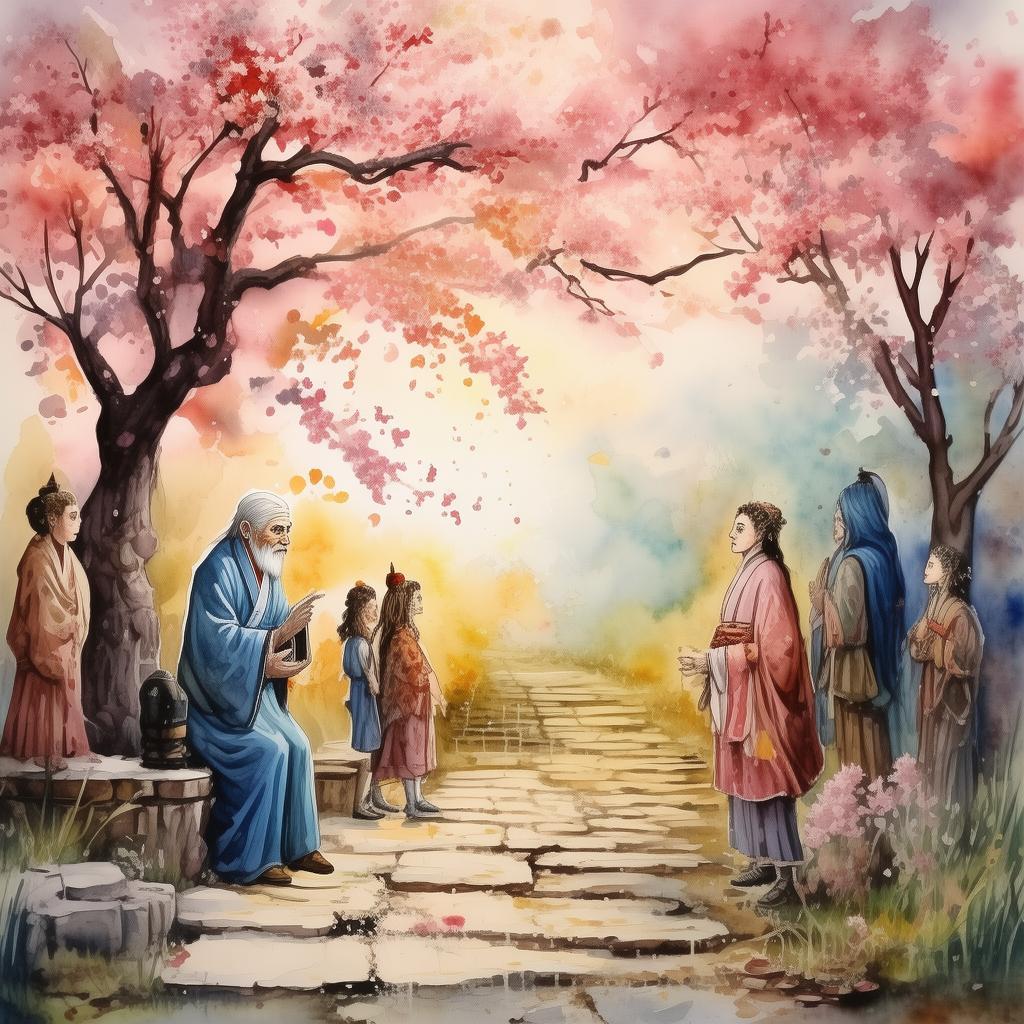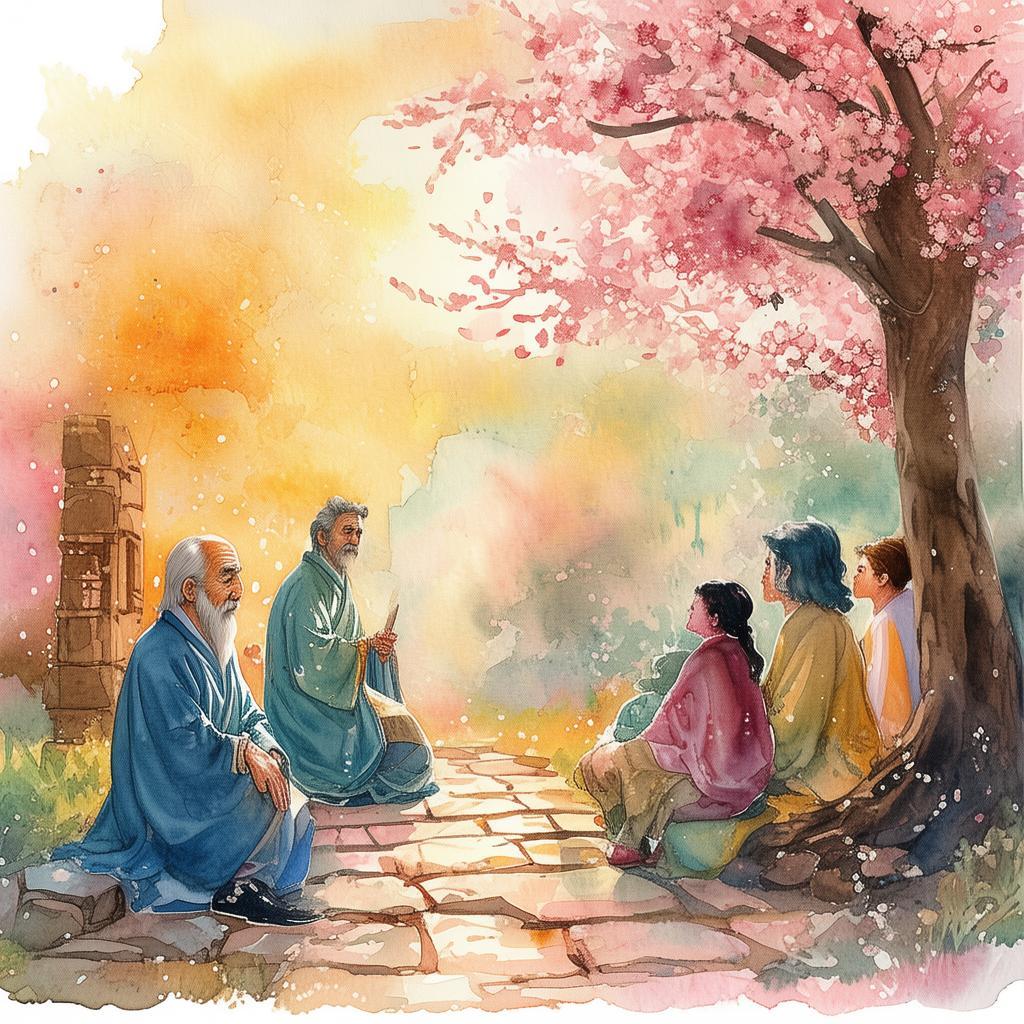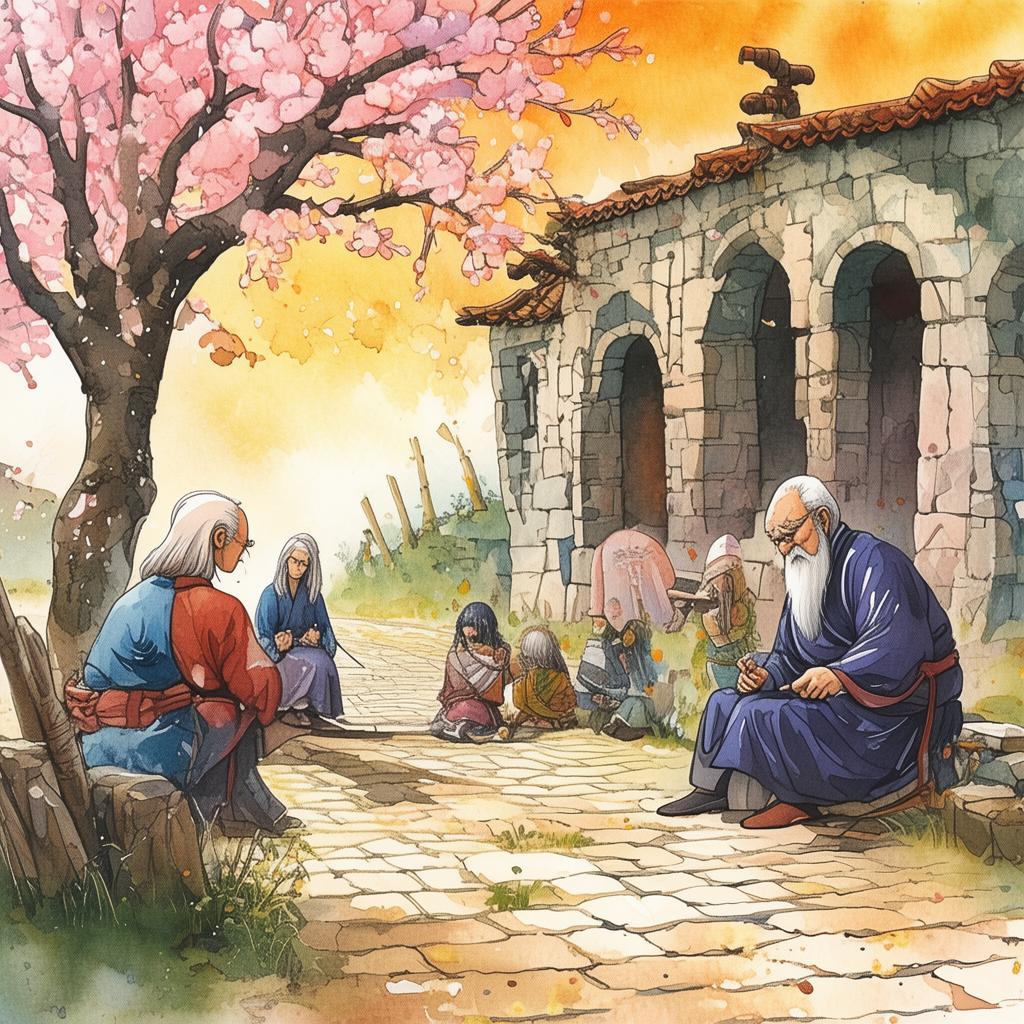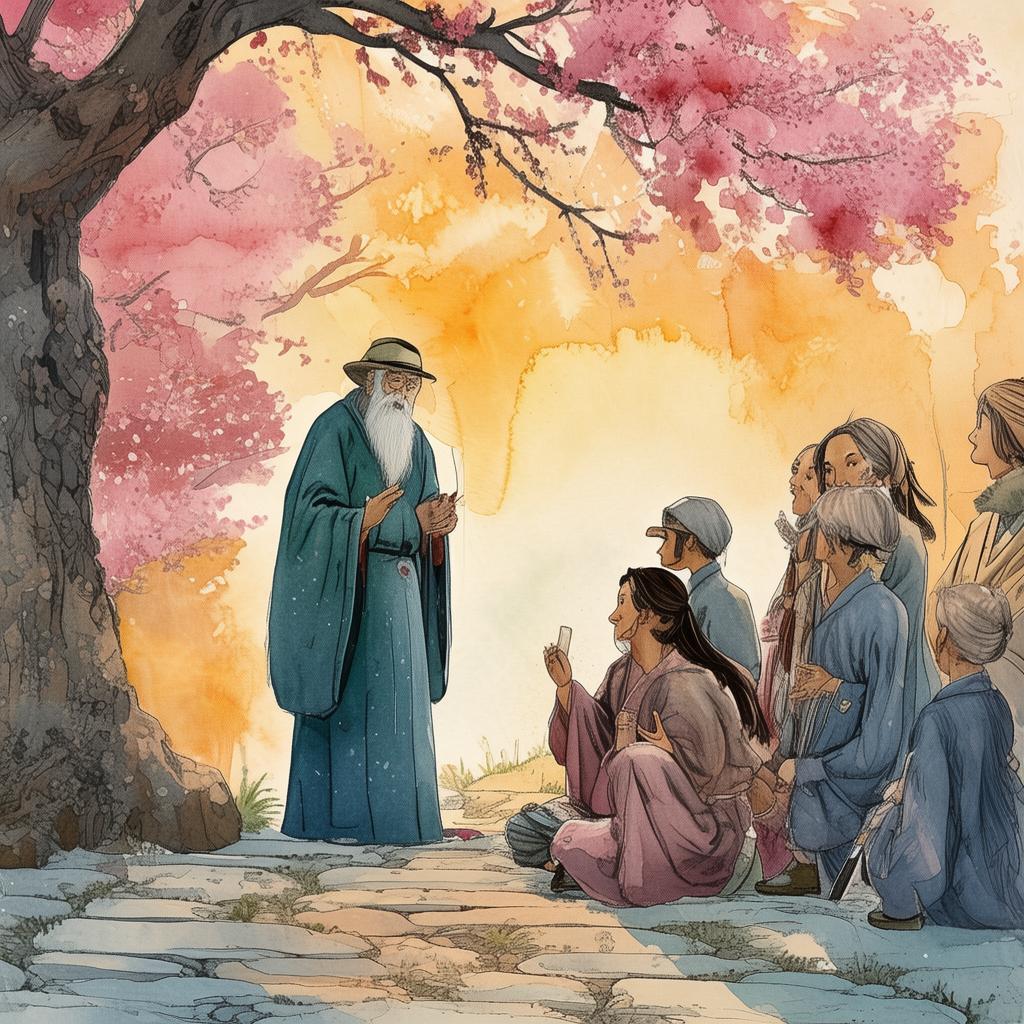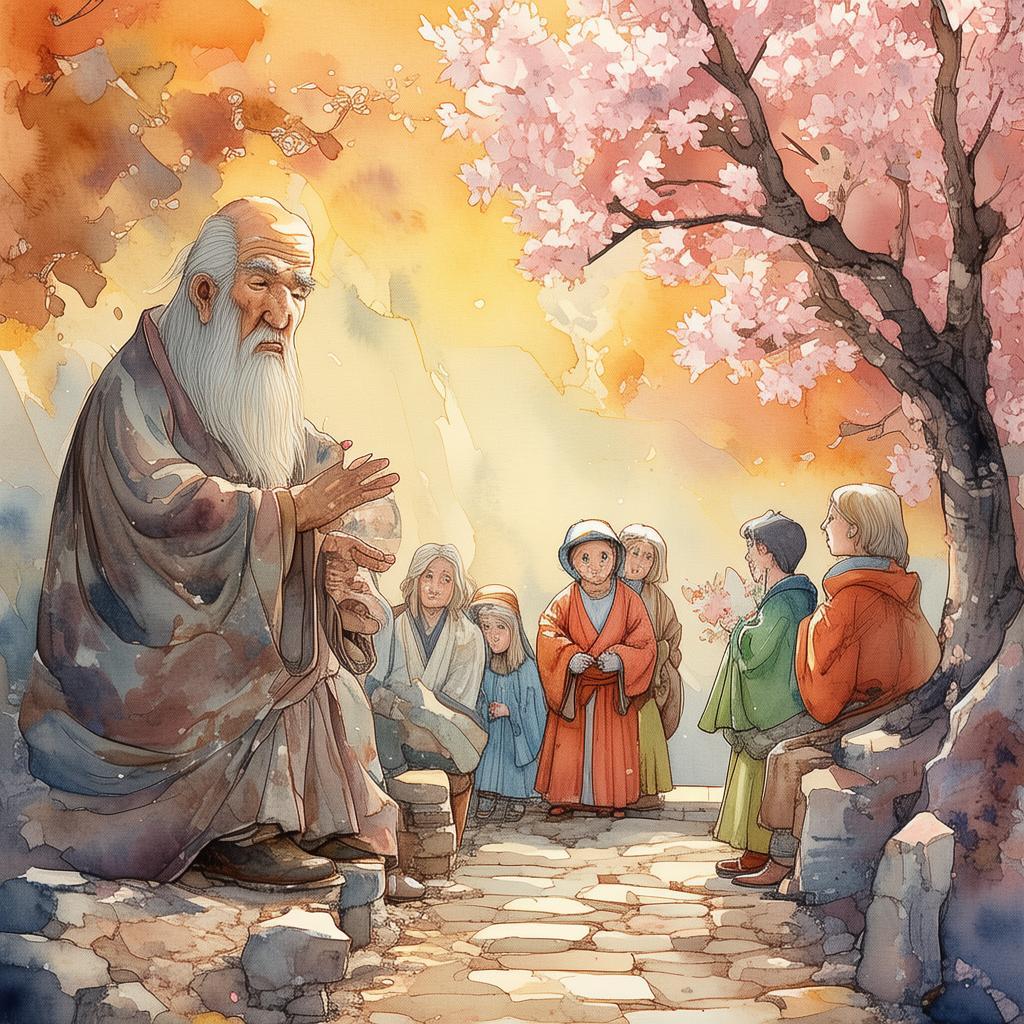The Bardic Blade: A Quest for the Heart of Poetry
In the ancient land of Elysium, where the winds whispered tales of yore and the rivers sang lullabies of old, there lived a young poet named Aelius. His name was as rare as the golden feathers of the phoenix, and his gift for words was as potent as the blade of a master swordsman. Aelius was known throughout the land for his lyrical verses, which could soothe the angriest of souls and stir the deepest of passions.
But Aelius was not content with the simple beauty of his craft. He sought the heart of poetry, a fabled artifact said to be imbued with the essence of all that was poetic. According to legend, it was a blade forged by the hands of a thousand bards, a blade that could cut through the thickest of veils and reveal the true nature of the human spirit.
One moonlit night, under the gaze of the silver moon, Aelius stood before the ancient library of Elysium, its walls adorned with the tomes of the ages. He felt the weight of his quest upon his shoulders as he took a deep breath and stepped into the library, where the air was thick with the scent of parchment and ink.
The library was a labyrinth of knowledge, each shelf a testament to the wisdom of the ages. Aelius wandered through the aisles, his eyes scanning the spines of the books for any clue that might lead him to the heart of poetry. It was then that he stumbled upon an old, leather-bound tome with a title that made his heart skip a beat: "The Bardic Blade: The Quest for the Heart of Poetry."
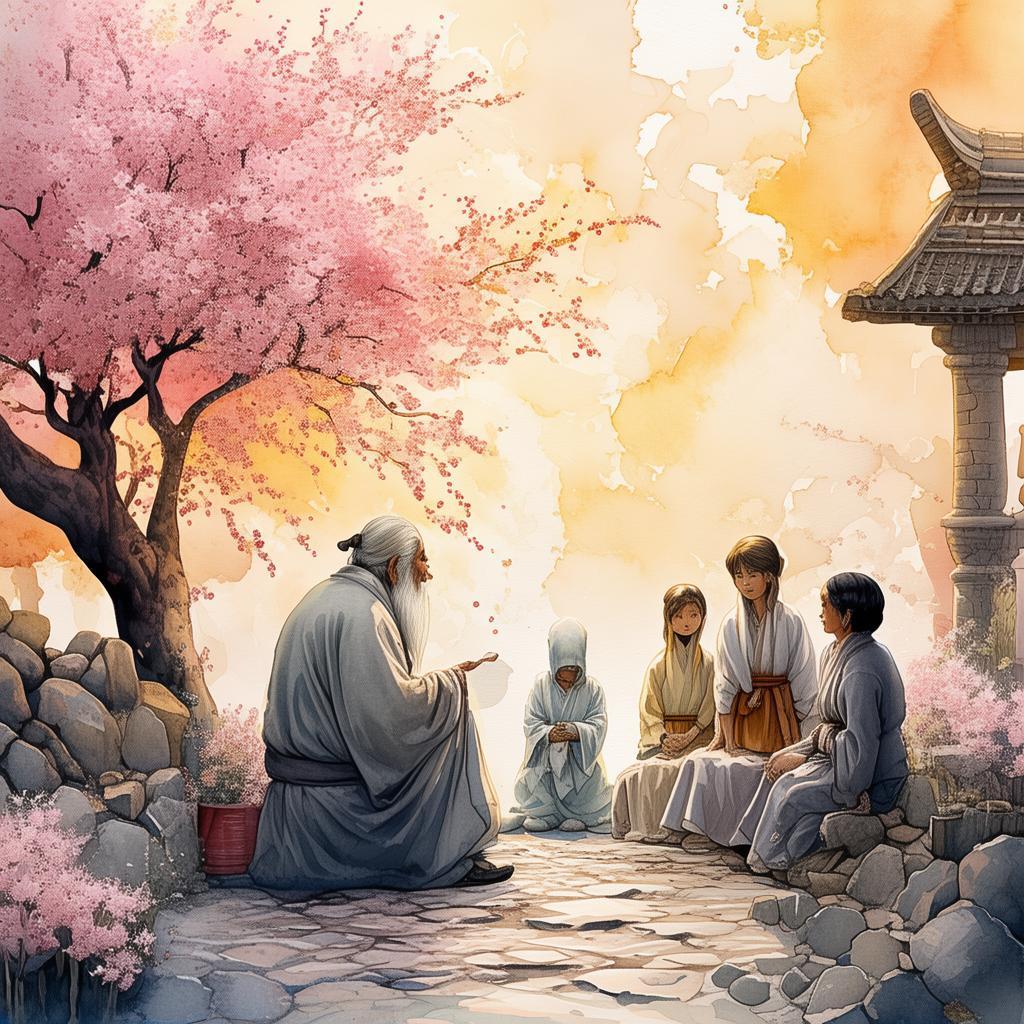
As he opened the book, he found a map that led to the fabled Blade. The map was marked with X's, each one a location where Aelius would have to face a trial of his own making. The first trial was a test of his resolve, set in the Valley of Echoes, where his every word would be repeated back to him, testing the strength of his character and his will to succeed.
Aelius arrived at the Valley of Echoes and found himself surrounded by a chorus of voices, each one echoing his own. They taunted him, questioned his worth, and challenged his very reason for being. But Aelius stood firm, his resolve unshaken. He began to sing, his voice clear and true, a melody that reached into the very core of his being. The echoes ceased, and the voices fell silent, leaving Aelius to ponder the nature of his quest.
The next trial was a test of his love, set in the Forest of Whispers, where the trees themselves would speak to him, revealing the deepest secrets of his heart. Aelius entered the forest and was greeted by a grove of ancient trees, their leaves rustling with the voices of the past.
One tree, older than time itself, spoke to Aelius, revealing a truth he had long denied: his love for a woman named Elara, who had left him years ago, her reasons unknown. Aelius realized that his quest was as much about finding the heart of poetry as it was about finding the heart of his own love.
The trials continued, each one more difficult than the last. Aelius faced the Mirror of Truth, which showed him his deepest fears and desires; the Labyrinth of Words, where he had to navigate through a maze of his own thoughts and emotions; and the Chorus of the Ages, where he had to sing a song that would resonate across the ages.
As Aelius neared the final trial, he felt the weight of his journey upon his shoulders. He had faced trials that tested his resolve, his love, and his very soul. But the final trial was the most daunting of all: the confrontation with the Guardian of the Bardic Blade, a creature said to be as wise as it was fierce.
The Guardian appeared before Aelius, a being of immense power and grace. It spoke of the heart of poetry, not as a physical artifact, but as a state of being, a purity of spirit and a love for the craft that could not be contained within a blade.
Aelius, now enlightened, realized that the true quest was not to find the heart of poetry, but to become it. With a newfound determination, he faced the Guardian, his heart filled with love and his spirit unbreakable.
The Guardian, moved by Aelius's journey, allowed him to take the Bardic Blade, not as a token of power, but as a symbol of his transformation. Aelius returned to the library, where he found Elara, who had been watching his journey from the shadows.
They embraced, their love rekindled by the trials Aelius had faced. Aelius realized that the heart of poetry was not a place or an object, but a journey, a quest for the very essence of humanity.
And so, Aelius became the Bardic Blade, a poet whose words could cut through the darkest of times and whose love could light the way for all who sought the heart of poetry.
✨ Original Statement ✨
All articles published on this website (including but not limited to text, images, videos, and other content) are original or authorized for reposting and are protected by relevant laws. Without the explicit written permission of this website, no individual or organization may copy, modify, repost, or use the content for commercial purposes.
If you need to quote or cooperate, please contact this site for authorization. We reserve the right to pursue legal responsibility for any unauthorized use.
Hereby declared.
